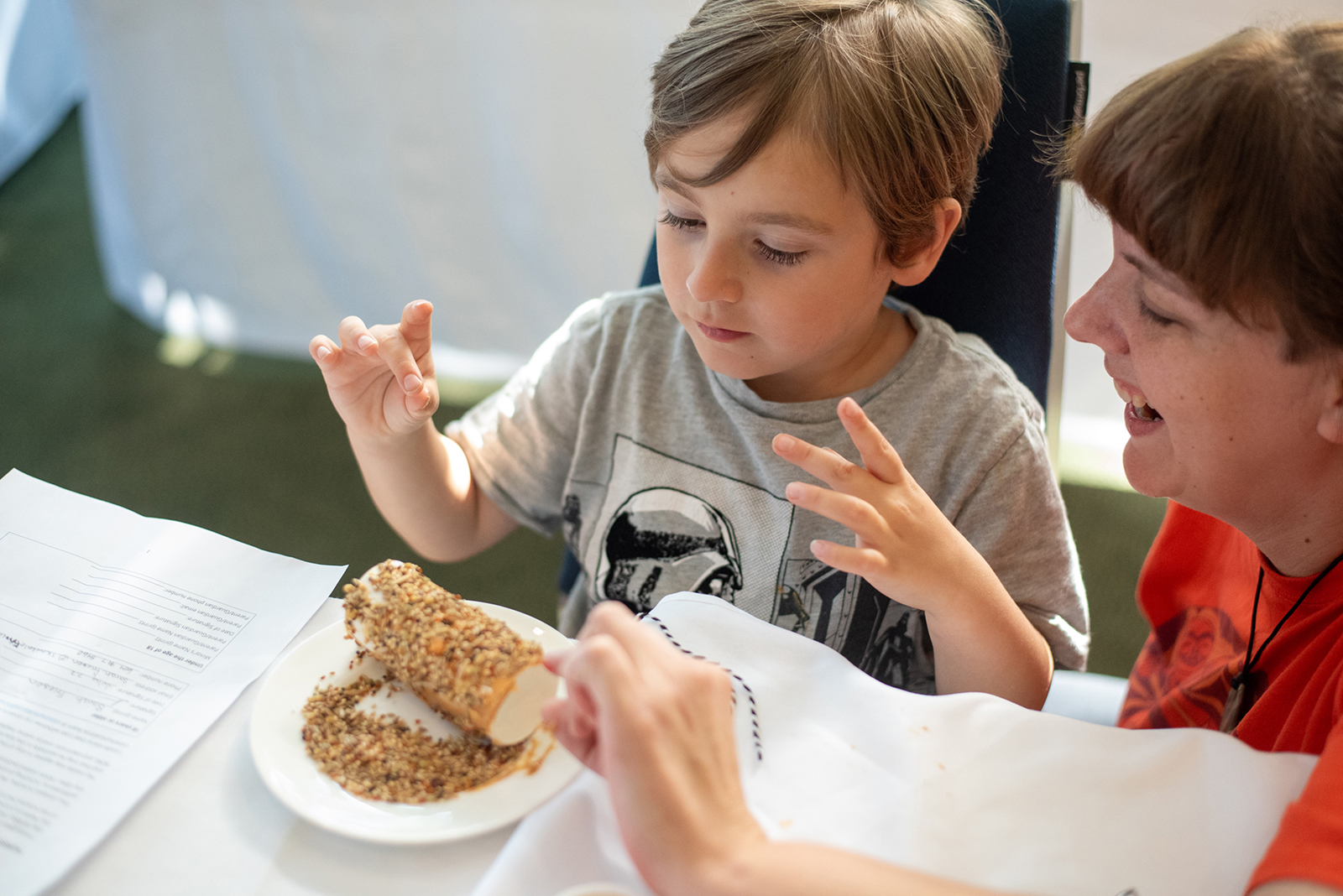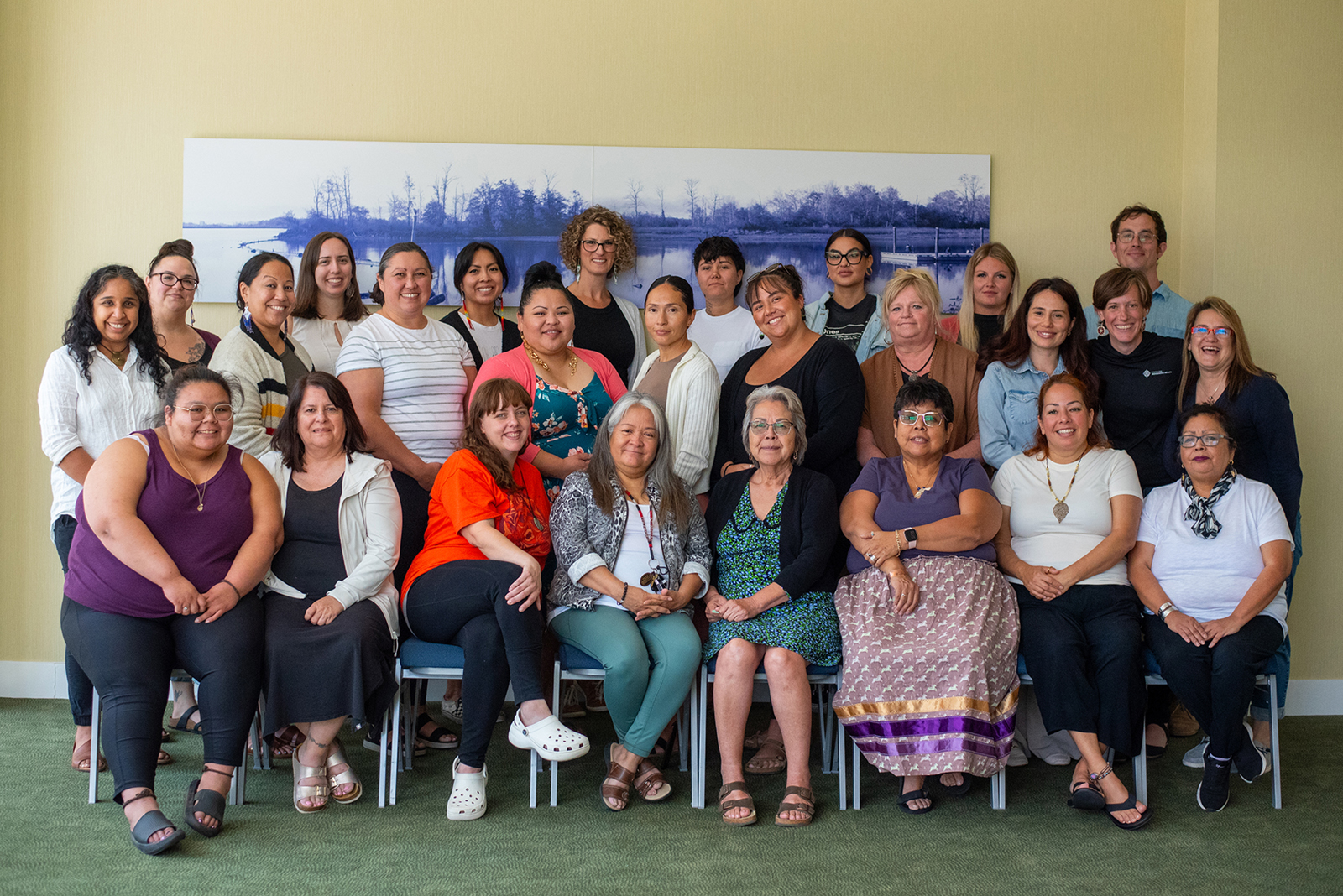After putting the finishing touches on her googly-eyed paper bird, Shauna Alec holds her creation triumphantly for the room to see. Smiles abound before heads are down again—everyone is engrossed in their own handcrafted project.
Shauna, from Lake Babine Nation, is one of several participants taking part in a week-long training program hosted by a mix of facilitators from the Johns Hopkins Center for Indigenous Health and FNHA staff who are working together to adapt the U.S.-based Family Spirit home-visiting program in First Nations communities across BC.
This week's training is intended to provide the new Early Years Educators with the skills needed to take the Family Spirit curriculum back with them, adapt and integrate it into early childhood development courses for children six years and under.
As part of the LEGO SPIRIT project (which stands for Supporting Play and Intergenerational Relationships with Indigenous Traditions), funded by the LEGO Foundation, the FNHA has invited five communities—one from each of the FNHA's five regions in BC—to take part in the project here in Canada. The Family Spirit program is culturally tailored, and each community is encouraged to adapt it further to fit their own unique needs.
“This curriculum is evidence-based where culture is woven into the lesson plans," explains Denise Lacerte, manager for Healthy Children and Youth at the FNHA. “Each one of the five communities can adapt it to their needs by focusing on language or by choosing to adapt it toward older or younger groups of children."

Lessons can be developed into a one-to-one home environment, or a community-based group program with many families, she adds. Lacerte says the flexibility is meant to give communities a choice, giving them full autonomy.
Toni Winterhoff, Specialist, Healthy Children and Youth with the FNHA, praised the team from John Hopkins for encouraging communities to lead the way.
“Some [project] funders are restrictive in the way you can do things," she says. “But this [project] isn't about proving our worth to our funders."
Winterhoff says that at the core, the curriculum aims to shift language to be strengths-based by delivering relational approaches that meet the mind, body and spirit of children and their caregivers.
For example, Winterhoff explains, rather than saying “keeping our kids safe," we say, “protecting our children." Or, instead of focusing on diabetes prevention, we say, “I want to stay healthy for my children."
The FNHA is the first global partner to provide international training for the Family Spirit Core and THRIVE curriculum as provided by Johns Hopkins Center for Indigenous Health. The five selected communities will be participating in the program for the next five years. They are among 20 sites selected in participating countries; including the United States, Australia and Aotearoa (New Zealand). Infrastructure in the form of intergenerational play spaces is also a planned part of the program.


